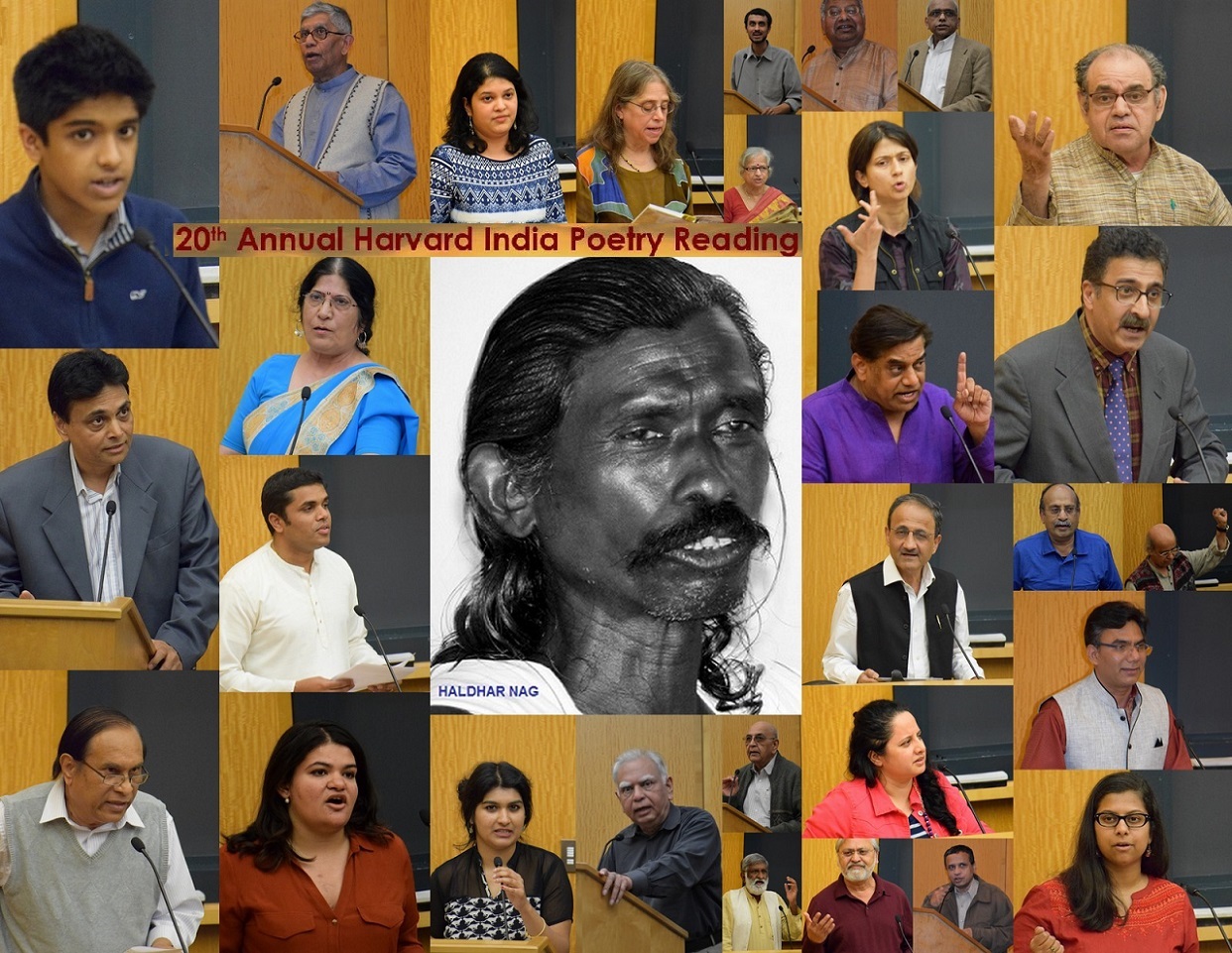Haldhar Nag’s poem Dhadho Bargach was translated into English and recited at Harvard University, department of South Asian Studies and South Asia Institute in association with South Asian Poets of New England at the 20th Annual India Poetry Reading.
On May 15, Sunday, thirty two poets of South Asian origin talked about the interpretation of the environment and dabbled with the various aspects of it through poetry and songs. This year marked the 20th year since the India Poetry Reading group was formed. This event was hosted by the South Asia Institute and the Department of South Asian Studies of Harvard University. The program started at 2:30 PM.
Dr. Bijoy Misra, an Associate in the Department of South Asian Studies and the Convener for the Group gave a short history of the program since 1997. He acknowledged the support of late Catherine Galbraith and Swami Sarvagatananda who helped generate support for the original event on the occasion of the Golden Jubilee of India’s independence from the foreign rule. He acknowledged the support from Sajed Kamal, Rosie Kamal, Alok De, Maya De, Jaspal Singh and Hardeep Mann through the years. South Asian Poets of New England was formed in 2008 and hosts the quarterly poetry reading events in the local area. It is merged with the newly formed India Discovery Center, Inc., a new nonprofit group dedicated for scholarly research on India. Dr. Misra presented a short review of the arrangement of the poems for the afternoon to weave through the grandeur of the nature to the pollution and destruction, marching on to water scarcity, economic deprivation and suicide. He said the conclusion was focused on human duty towards environment through a special poem in Sanskrit dispatched from India.
Dr. Misra chose to start the meet with the recitation of a poem by a poet in Koshali language who was rewarded with a Padmasri award last January by the Government of India. Haldhar Nag had to drop out of school at 3rd Grade because of family difficulties. He supported his family by working as a manual labor. He got familiar with literature by interacting with High School students when he worked as a cook in the dormitory. He started composing at the age of forty and at sixty five is the most popular poet in the region. Dhodho Baragach“That Old Banyan Tree” narrates the lone tree standing at the entrance to the village and is the witness to the life in the village. “Sees everything, knows everything, checks each, and hears all,
Never speaks a word, never talks, never opens to tall or small!” said the poet.



